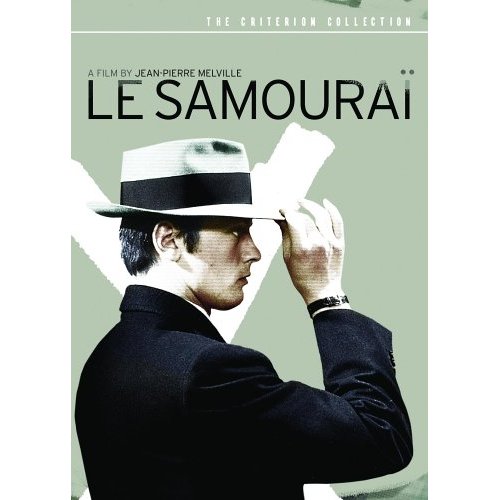
Five months ago, I was introduced to Le Samouraï, the masterpiece directed by Jean-Pierre Melville. A respected Miami artist recommended it to me, and the suggestion was seconded that same evening by Adler Guerrier. Intrigued, I immediately added it to the top of my Netflix queue. When I finally sat down to watch it, I made notes, intending to share my thoughts here. Life got in the way, but today, with Cansei de Ser Sexy providing the perfect musical backdrop, I’m finally putting my reflections into words.
An Artistic Revelation
Le Samouraï epitomizes the kind of art cinema that reminds me there is a wealth of unexplored treasures in film history. Since watching it, I’ve delved into other Melville films, but none has come close to the brilliance of this one. From the very first shot—a still, painterly composition that lingered like eternity—I knew I was witnessing something extraordinary. As the frame gradually revealed a figure on the right, Alain Delon, the film began to unfold its magic.
Alain Delon: From Satire to Sublimity
Alain Delon, often the subject of satire for his narcissistic public persona, was transformed in my eyes by this film. Growing up, I’d heard of his self-referential statements (“Alain Delon thinks…”), famously mocked by Les Guignols. But here, Delon’s performance transcended caricature. His portrayal of Jef Costello, a solitary hitman bound by his own moral code, is magnetic. This film elevated Delon from an object of humor to an icon of cinematic elegance.
The Influences and Legacy of Le Samouraï
Melville’s work seems deeply influenced by Luchino Visconti’s The Leopard, yet it has a minimalism and precision all its own. It’s not difficult to see how Le Samouraï inspired later films such as Jim Jarmusch’s Ghost Dog: The Way of the Samurai and John Frankenheimer’s Ronin. What stands out is the film’s stark restraint: there’s no dialogue in the first ten minutes, a rarity in contemporary cinema. This absence of chatter heightens the tension and draws the viewer into a world where actions speak louder than words.
A Fusion of Cultures
The film carries an intriguing blend of Japanese and American influences. The cars and costumes are quintessentially Americana, yet the protagonist embodies a Japanese Bushido ethos—stoic, disciplined, and detached. Jef Costello is a man of few words but immense purpose. In one unforgettable scene, he steals a car with a calm precision that demands rewatching. His isolation, despair, and eventual “suicide by cop” echo a profound existential struggle.
A Cinematic Church
Every frame of Le Samouraï feels pure, like a visual hymn. There’s an elegance to its iconography that conveys meaning without dialogue—a quality reminiscent of medieval church art. Though set in 1966, the film feels timeless, with its universal themes of solitude and morality. Watching it, I found myself writing in my notes, “He is me; I am him.” While I no longer feel that way, the sentiment reflects how deeply the film resonated with me in the moment.
A Gentleman’s Minimalism
The formal beauty of Le Samouraï embodies a controlled minimalism that’s rare in today’s cinema. It’s a quiet meditation on masculinity and the lost art of being a true gentleman. Jef Costello’s code of honor and unflinching integrity stand in stark contrast to modern society, where guilt and personal responsibility often seem antiquated.
Why You Should Watch It
Le Samouraï is more than a film; it’s an experience that lingers long after the credits roll. Its timeless elegance and profound exploration of solitude and morality make it a must-watch for cinephiles and casual viewers alike. If you’ve yet to see it, I highly recommend adding it to your list—and when you do, let yourself be immersed in its quiet brilliance.